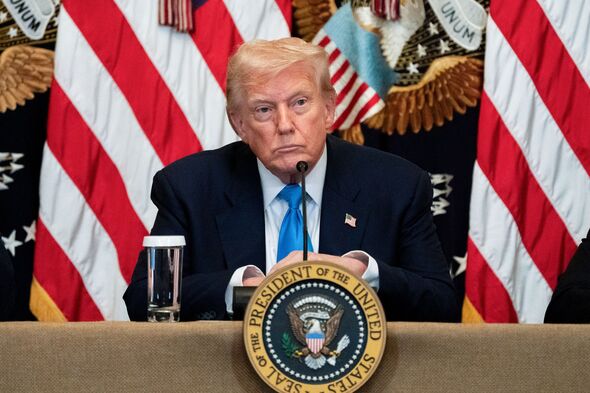A recent high-stakes debate unfolded on CNN, capturing national attention as political commentator Scott Jennings and host Abby Philip engaged in a heated exchange regarding former President Donald Trump’s controversial global tariff policies.
This fiery discussion stemmed from a series of assertive moves made by Trump’s administration, including the proposed imposition of a significant 25% tariff on goods from India and a substantial 50% tariff on products originating from Brazil. These actions underscored a clear intent to reshape global trade dynamics, with the President firm on not extending the impending deadline for new tariff levels to take effect.
During the intense CNN segment, Abby Philip rigorously challenged Scott Jennings on the nuances of these announcements, particularly focusing on statements made earlier in April. Philip argued that the initially declared tariff levels were far from final, suggesting a discrepancy between the rhetoric and the actual policy implementation, which fueled the contentious dialogue.
In response, Jennings staunchly defended the former President’s economic strategy, asserting that Trump was merely executing his pre-declared tariff agenda. He countered Philip’s concerns by pointing out that despite widespread predictions of economic disaster, such a calamity had not materialized, thereby validating the administration’s approach to international trade.
Adding another layer to the already frosty exchange, journalist Richard Quest intervened, highlighting what he perceived as an unfair comparison of figures. Quest noted that critics were juxtaposing high tariff percentages from April—such as 40%, 50%, or 60%—with the considerably lower current tariff levels of 10% or 15%, suggesting a misrepresentation of the true economic impact.
Concurrently, the global economic stage remains dynamic, with the United States and the European Union reportedly in a critical race to finalize the intricate details of a major new trade deal before an upcoming Friday deadline. This bilateral agreement holds significant implications for transatlantic commerce and geopolitical relations, further emphasizing the delicate balance of international trade negotiations.
Meanwhile, attention also turns to the future of the trade truce between the world’s two largest economies, the US and China. Treasury Secretary Scott Bessent is reportedly slated to make the final pivotal decision on whether to extend this truce beyond its August 12 deadline, a choice that could profoundly influence global economic stability and future trade relations.
These ongoing discussions and policy decisions underscore the complex and often contentious nature of international trade, illustrating how high-level debates on networks like CNN reflect broader economic tensions and the continuous pursuit of advantageous trade agreements by major global players. The outcomes of these negotiations will undoubtedly shape the global economy for years to come.






Leave a Reply